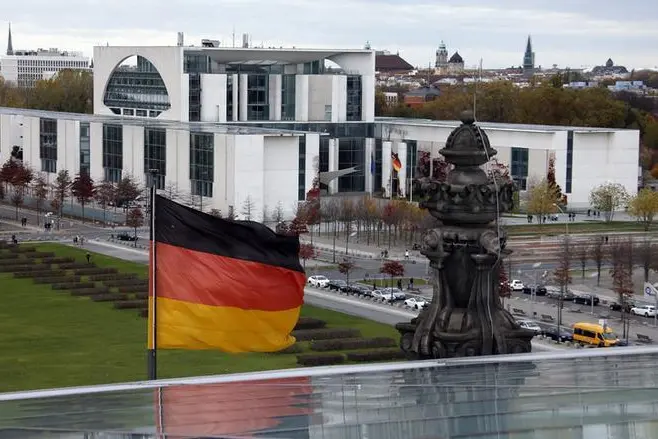PHOTO
BERLIN - The German government is adopting a clear-cut strategy to address the climate change and global warming crisis that sets out a path to achieve Germany's climate goals. These goals are to reduce greenhouse gas emissions by 65% by 2030 compared to 1990, 88% by 2040, and to achieve climate neutrality in 2045.
In 2021, Germany made fundamental improvements to its Climate Protection Act ("Bundesklimaschutzgesetz" or "KSG") and raised the level of climate goals set out as per the law. The revised version states that the annual volume of harmful emissions allowed until 2030 will be significantly reduced by 65%, and that Germany's target of reaching net-zero emissions will be brought forward by five years to 2045.
The statistical data in Germany confirm that climate change is causing severe human and material losses and high costs due to exposure to extreme weather events, most notably floods and severe storms. These events have caused damage worth around 145 billion euros between 2000 and 2021.
Scenarios that simulate future developments in climate change predict that the value of future losses and costs in Germany will rise to between 280 billion euros and 900 billion euros by 2050, in addition to the pressure on ecosystems, loss of biodiversity, and deterioration of living standards.
A study by the Institute for Ecological Economy Research (IÖW) has shown the extent of the losses caused by the effects of climate change in Germany. The study found that river and lake floods caused by heavy rainfall are among Germany's most damaging extreme weather events.
The study pointed to their impact on areas including industry, trade, supply chains, and damage to buildings, homes, roads, and traffic. The report confirmed that the damage caused by floods has reached around 70 billion euros since 2000.
The study highlighted the flood that occurred in the Ahr and Erft valleys in July 2021, which caused the greatest damage to Germany in its recent history, at 40.5 billion euros, due to floods.
The clear evidence of climate change and its devastating effects on Germany in the form of human, material, and environmental losses has led successive German governments to attach great importance to reducing greenhouse gas emissions and setting climate goals they are working to achieve through different channels.
The most important of these is to double the capacity of renewable energy generation from wind, solar, and hydroelectric sources on land and at sea, to increase annual consumption of clean electricity from around 50% currently to 80% by 2030, and to generate around 360 gigawatts from renewable energy sources in 2030. This is done by encouraging private and public investments in climate-friendly technologies with the help of national, European, and international investment and financing tools to finance the major energy transition towards climate neutrality.
German energy transition studies confirm that Germany's greatest potential for clean energy generation lies in solar energy. An expansion of 22 gigawatts per year would increase photovoltaic power production to a total of 215 gigawatts by 2030. This would coincide with the expansion of wind turbine installations to a total of 115 gigawatts on land, despite the difficulties involved in allocating land for wind turbines.
As for Germany's most notable achievements in combating climate change and reducing harmful emissions, the latest report from Germany's Federal Environment Agency, "Umweltbundesamt," showed a decrease in Germany's carbon dioxide emissions by about one million tons in 2022. The report showed that last year saw the release of about 354 million tonnes of carbon dioxide equivalent, compared on an annual basis.
The report also found that harmful emissions decreased by 6% to 112 million tonnes in the industrial sector and increased by 3% to 242 million tonnes in the energy sector. The report also found that greenhouse gas emissions decreased by 1.9% compared to 2021, which aligns with the country's climate goals and the achievement of climate goals in general.
In an analysis of the most prominent reasons for the decrease in the volume of harmful emissions in Germany, Simon Müller, an energy transition expert and director of the Agora Energiewende research centre, attributed the main reason for the slight decrease in the volume of harmful emissions recorded by Germany recently to the decrease in production in the sector of energy-intensive industries, due to the rise in energy prices, especially gas.
The energy transition expert also pointed to the effects of energy-saving measures on the decline in production and the decrease in harmful emissions.
Given Germany's level of interest in the climate change crisis and the reduction of harmful emissions at the international level, the German government has recently pledged to increase its contributions to the financing of climate change mitigation measures internationally by increasing funding allocated to climate change mitigation measures worldwide to six billion euros by 2025, and supporting the Green Climate Fund with an additional amount of two billion euros.





















